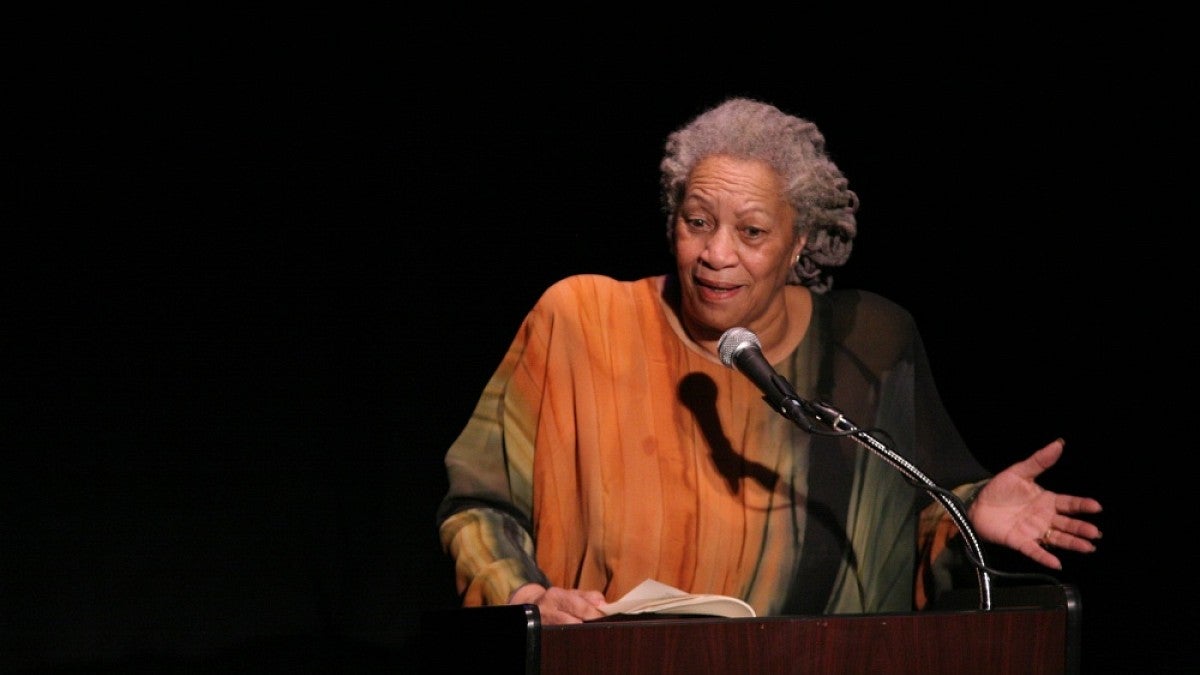Editor's note: Toni Morrison, Nobel laureate and the acclaimed author of 11 novels, died Monday at age 88, leaving an enduring legacy in American letters for her work exploring the African American experience. Her work has been taught by UO professors, notably Courtney Thorsson, associate professor of English, who is currently writing a book about Morrison in the 1970s. Thorsson offers her reflections on Morrison's work here:
In her years as an editor at Random House, many essays and public lectures, one short story and 11 novels, Toni Morrison championed African American literature and created some of its most important works. Her novels, especially "Beloved," have shaped public and academic understandings of African American literature since the 1970s.
Morrison occupies a singular place in American letters because of her remarkable aesthetic achievements, but also because of the hard work of many African American writers and intellectuals, especially Black women, who have studied, taught, and celebrated her work from the time of the publication of her first novel, "The Bluest Eye," in 1970, to the present.
I read, study, teach, and write about contemporary African American literature. This means that, in one way or another, I am thinking with and through Morrison’s writing and ideas nearly every day. With her close friend Toni Cade Bambara (a contemporary African American woman novelist, short story writer, and essayist), Morrison is among the two writers whose fiction has been central to my intellectual formation.
My first book, "Women’s Work," includes a chapter on Morrison’s "Paradise," my current book-in-progress is about a writers group Morrison was part of in New York in the late 1970s, I write about her work in articles, I teach Morrison’s novels in my various African American literature courses almost every term, and I have taught a Major Authors course focused solely on her works.
Morrison called for Black writing that was simultaneously beautiful and political, both supernatural and real, and always, always, seriously and joyfully Black. Her novels answered that call; they are among the most formally innovative, intellectually exciting, and emotionally moving works of literature of any time, nation, or cultural tradition, but they are also steeped in the African American literary tradition and are by, for, and about Black Americans.


